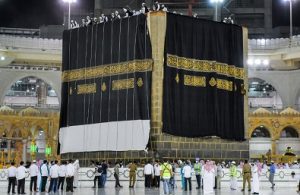Yemen’s Riyadh Agreement

After some stressed months full of tension that often led to military tussle, the southern separatists of Yemen publicly said they will give up their struggle and desire for separation and self-determination to apply a peace pact with the government of President Abd-Rabbu Mansour Hadi.
The hostility between the two sides, the Yemeni separatists—Houthi rebels—and the Saudi-led military coalition grew bigger as the allies fought and is still fighting against the Houthi rebels. It has opened a new vista in the multi-dimensional tug of war in Yemen, which some people don’t agree to call something less than a “civil war within a civil war.”
Tensions reached its zenith when in April the Southern Transitional Council (STC) broke its relations and deal with Hadi’s government and one-sidedly declared “self-rule”. This proved to be a step that ignited bitter clashes across southern Yemen and the Socotra archipelago.

The UAE-supported STC told the press that they repealed their demands for self-rule and vowed that they would facilitate every move for a power-sharing pact that was initiated by Saudi Arabia known as Riyadh Agreement in November last year but which unfortunately could never be implemented due one reason or the other.
This statement arrived later after Saudi Arabia declared it had given a plan to “accelerate” the effectiveness of the Riyadh Agreement, which was deemed as a effort by the kingdom to bring back order and peace in the coalition and to bring their focus towards the basic aim of the very initial stage—subduing the Houthis.
Below is a list of some of the main characteristics of the Riyadh Agreement.
Political
The Riyadh Agreement provides for the formation of a new technocratic government with no more than 24 ministers.
It says the cabinet positions must be distributed equally between northerners and southerners.
The ministers, who will be named by the president after consultation with the prime minister, must not have taken part or incited their followers to participate in any clashes between the two sides.
The prime minister will, after consultation, appoint a governor and director of security for Aden, the internationally-recognised government’s interim seat after the 2014 takeover of Yemen’s capital, Sanaa, by the Houthis. The same process will ensue for the southern provinces of Abyan and Dhalea.
All state revenues will be deposited in the central bank of Aden.
Military
According to the Riyadh Agreement forces that moved towards Abyan, Aden, and Shabwa, the place of lethal confrontation between the STC and government forces, are to leave the place and to go back to their previous positions.
Local security forces will replace them.
Security and Military forces present in Aden will also be displaced under the observation of and according to timelines finalized by the coalition forces.
However The First Presidential Protection Brigade has the exemption from the new steps. It, according to the proposed plan in Riyadh Agreement, will carry on its responsibility to give security to the presidential palace and its vicinity. Similarly, the STC leadership will also be given the same facility of protection and security.

Security
The STC forces will be merged with the Ministries of Interior and Defence, which will finally be under the control and the authority of Hadi’s government.
STC and Government military forces will vacate Aden province within a month. Overseeing the internal security of the city will be the duty and responsibility of Saudi Arabia.
Counterterrorism forces and the security forces in Aden will be restructured and remodeled with members from government’s ranks and the STC. Lastly, the security director of the interior ministry will establish a defence force that will be responsible for defending and guarding main and important civilian property.
Relevant Post
Qatar ‘perplexed’ by Saudi on WTO ruling
Sharrif won’t respond to 911 calls against Black Lives Matter
Black Lives Matter May Be the Largest Movement in U.S. History
What Can You Do With an English Literature Degree?
Greece VS Turkey over Hagia Sophia
Our Social Presence
Facebook:




